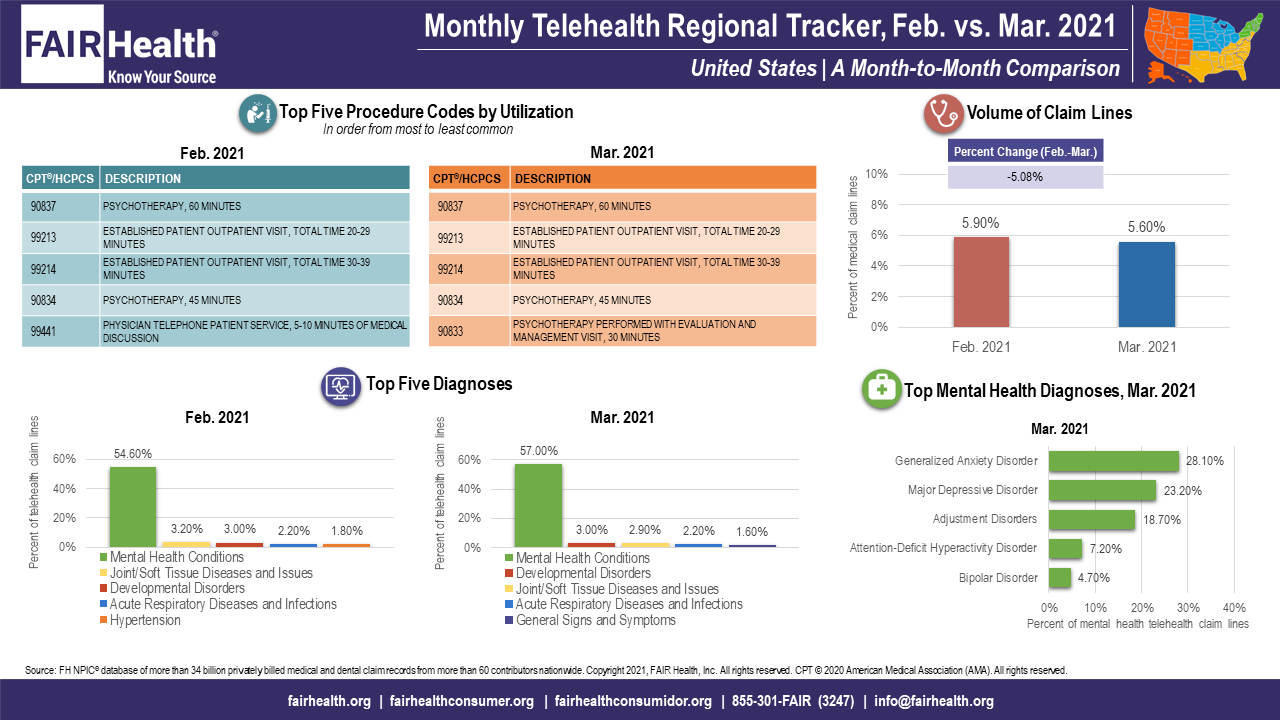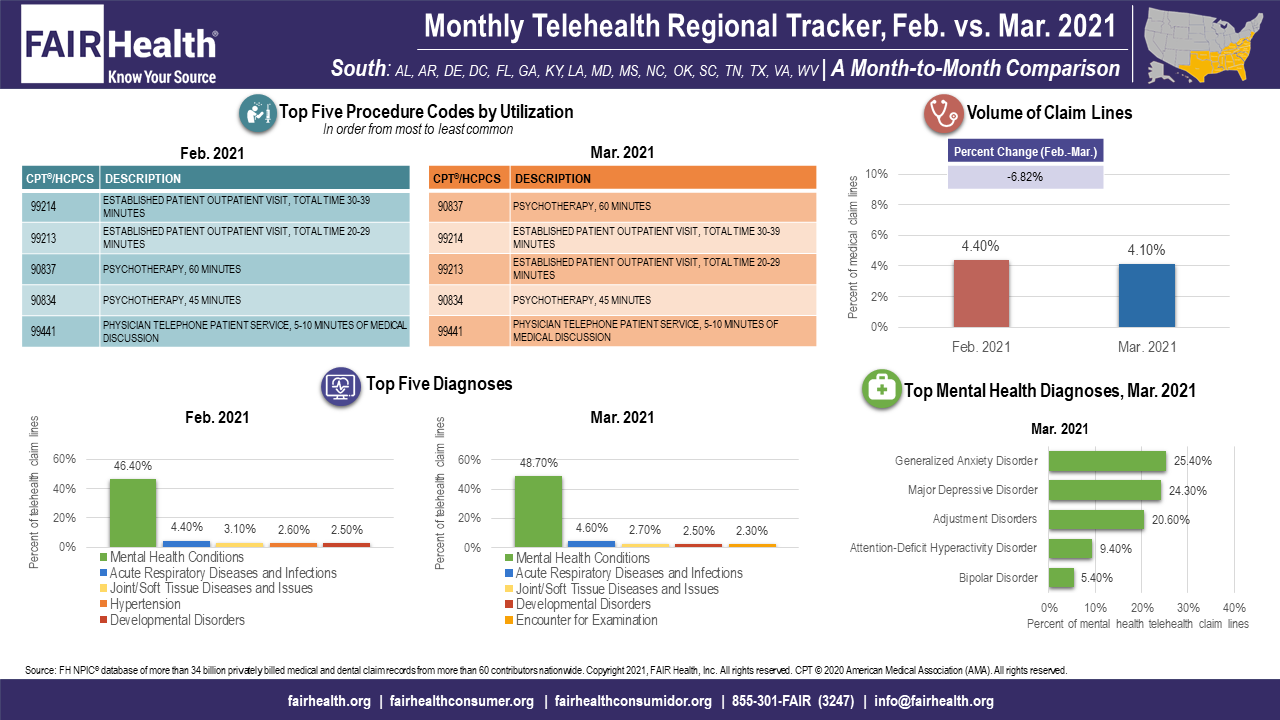- Center on Health Equity & Access
- Clinical
- Health Care Cost
- Health Care Delivery
- Insurance
- Policy
- Technology
- Value-Based Care
Contributor: Telehealth Utilization Continues to Fall Nationally From February to March 2021
From February to March 2021, telehealth utilization continued the nationwide decrease that began the previous month, but this time at a slower rate, according to FAIR Health’s Monthly Telehealth Regional Tracker. Telehealth claim lines fell 5.1% nationally as a percentage of medical claim lines, decreasing from 5.9% of claim lines in February 2021 to 5.6% in March (Figure 1), compared to a drop of 15.7% from January to February 2021. Telehealth usage also declined from February to March in all 4 US census regions, with the greatest decline in the Midwest, where the decrease was 8.9%. The data represent the privately insured population, excluding Medicare and Medicaid.
FIGURE 1. Monthly Telehealth Regional Tracker, February versus March 2021, United States
Source: FAIR Health

Telehealth utilization expanded greatly in 2020, as patients and providers sought a venue of care that would reduce the chance of transmitting COVID-19. Although there were some month-to-month decreases in telehealth usage in 2020, the decline that began in February 2021 coincided with a national drop in COVID-19 cases and increasing vaccination rates.
In another change from February to March 2021, nationally and in several regions, psychotherapeutic/psychiatric codes replaced or outranked evaluation and management (E&M) codes in the list of top 5 telehealth procedure codes. For example, in the South (Figure 2), 60-minute psychotherapy (CPT® 90837) rose from the number 3 to the number 1 position in the top 5 list, supplanting 2 E&M codes: 30-39-minute established patient outpatient visit (CPT 99214) and 20-29-minute established patient outpatient visit (CPT 99213). This trend was consistent with a continuing rise, nationally and in every region, in the percentage of telehealth claim lines associated with mental health conditions, the number one telehealth diagnosis.
FIGURE 2. Monthly Telehealth Regional Tracker, February versus March 2021, South
Source: FAIR Health

From February to March 2021, hypertension, as well as joint and soft tissue diseases, dropped in the rankings of telehealth diagnoses nationally and in some regions, while developmental disorders remained steady or rose in the rankings. Hypertension and joint and soft tissue diseases are largely adult conditions that were moving back to the office as COVID-19 vaccinations increased. Developmental disorders are more often seen in children, most of whom were not yet eligible for vaccination.
About the Monthly Telehealth Regional Tracker
Launched in May 2020 as a free service, the Monthly Telehealth Regional Tracker uses FAIR Health data to track how telehealth is evolving from month to month. An interactive map of the four US census regions allows the user to view an infographic on telehealth in a specific month in the nation as a whole or in individual regions. Each infographic shows month-to-month changes in volume of telehealth claim lines, top five telehealth procedure codes, top five telehealth diagnoses (or diagnostic categories) and top five granular diagnoses within the most common diagnostic category.
As the COVID-19 pandemic proceeds to a new stage marked by widespread vaccination, FAIR Health’s Monthly Telehealth Regional Tracker continues to monitor the evolution of telehealth in that context. This is one of many ways we pursue our mission of bringing transparency to healthcare information.
For the Monthly Telehealth Regional Tracker, click here.
Author Information
Robin Gelburd, JD, is the president of FAIR Health, a national, independent nonprofit organization with the mission of bringing transparency to healthcare costs and health insurance information. FAIR Health possesses the nation’s largest collection of private healthcare claims data, which includes over 34 billion claim records and is growing at a rate of over 2 billion claim records a year. Certified by the Centers for Medicare & Medicaid Services (CMS) as a national Qualified Entity, FAIR Health also receives data representing the experience of all individuals enrolled in traditional Medicare Parts A, B and D; FAIR Health includes among the private claims data in its database, data on Medicare Advantage enrollees. Ms. Gelburd is a nationally recognized expert on healthcare policy, data and transparency.
Ambient AI Tool Adoption in US Hospitals and Associated Factors
January 27th 2026Nearly two-thirds of hospitals using Epic have adopted ambient artificial intelligence (AI), with higher uptake among larger, not-for-profit hospitals and those with higher workload and stronger financial performance.
Read More
